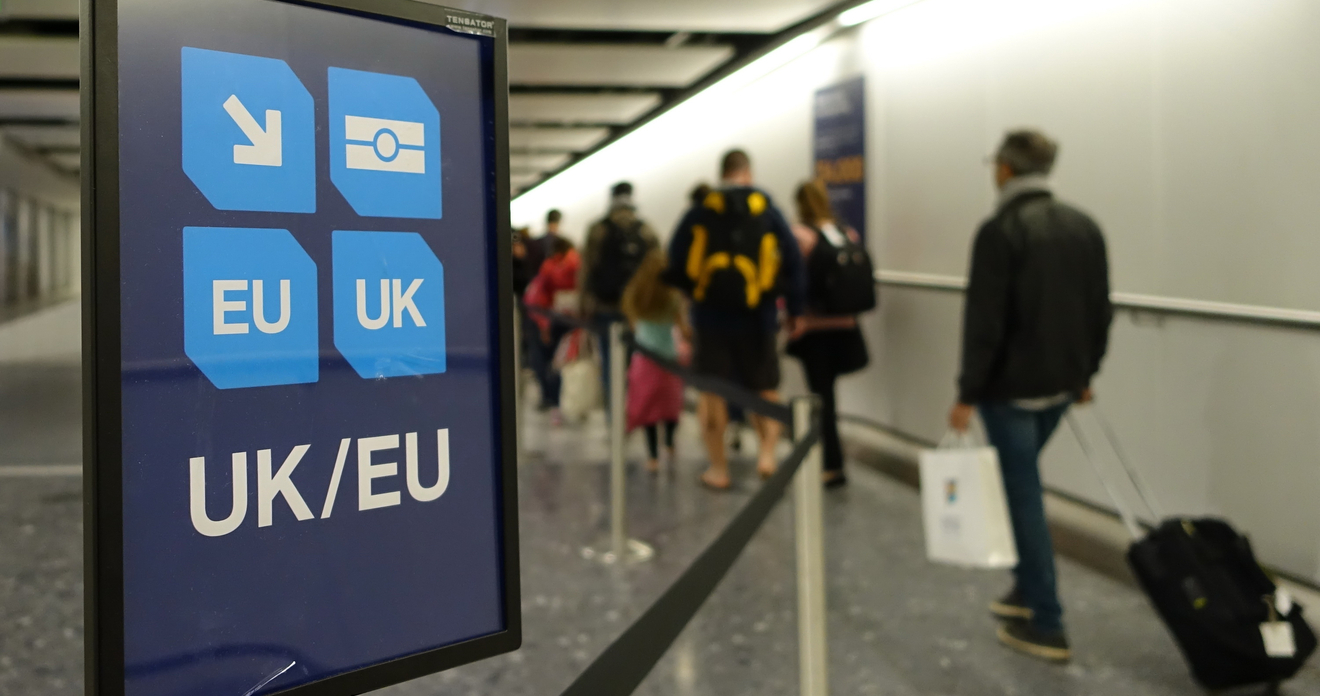Right to work checks – Government update – 17 January 2022

On 17 January the government published its guidance for employers on the checks they must carry out to ensure their employees have the right to work in the UK. This is the first such guidance consolidating everything that’s changed in this area since the formal end of the Brexit transition period on 31 December 2021.
Freedom of Movement Changes
Last year, the UK immigration system underwent its most significant changes in a generation. Amongst probably the most headline grabbing and hotly debated areas of change was the end to free movement of EEA nationals to the UK; as a result, from 1 July 2021, an EEA passport or ID document is no longer acceptable proof of right to work (with the exception of Irish passports – Irish citizens retaining their freedom of movement under the post Brexit settlement). The six-month grace period from 1 January 2021 was to enable those EEA citizens living in the UK on 30 December 2020, to solidify their leave to remain (and their right to work) via the EU Settlement Scheme (EUSS).
New Checking rules on EEA staff
The guidance makes clear that if employers have carried out requisite right to work checks on employees who started work prior to 1 July 2021, they will have done all that is expected of them and there is no requirement to carry out any refresher checks. This means that an employer does not need to find out whether such employees have actually been granted settled status and they will not be liable for continuing to employ someone who did not apply for EUSS in time or was not eligible or whose application was refused, provided the correct checks were done at the time of their recruitment. If, however the employer is actually made aware that the individual does not have the right to work, then further action will need to be taken.
Should employers become aware that their EEA employees have either lost or not acquired a right to work in the UK after 1 July 2021, the Home Office have confirmed that late applications to the EUSS are being accepted should the employee applicant be able to demonstrate a reasonable excuse for the lateness. Whilst non exhaustive examples have been cited by Home Office guidance including physical or mental incapacity or serious medical condition, anecdotal evidence heard by the Employment team here at RWK is suggesting that ‘reasonable excuse’ is, at least in part, being interpreted liberally. The employee will need apply within 28 days of the employer telling them to do so and will need to provide to the employer a Certificate of Application proving that an application has been made late, which the employer will then need to verify through the Home Office’s Online Checking Service. The employer will then be issued with a Positive Verification Notice (PVN) which will provide them with the Statutory Excuse for six months from the date of the PVN. If the employee does not apply within 28 days or if the employee is unable to prove status under the EUSS after the expiry of the six-month period covered by the PVN, or any other proof of right to work in the UK, the employer will need to take steps to dismiss.
Liabilities and Penalties
The liability and penalties for employing illegal workers have not altered with this guidance and remain linked to compulsory right to work checks which must be carried out by day one of the start of employment. Civil penalties for failing to carry out such checks and inadvertently employing illegal workers include fines of up to £20,000 per illegal worker. Employers can rely on the Statutory Excuse avoiding such penalties should it turn out that an illegal worker has fallen through the cracks despite the requisite checks being done. However, should an employer knowingly recruit an illegal worker – an offence linked to that of human trafficking - the criminal penalties include up to five years imprisonment and an unlimited fine, for which there is no excuse, statutory or otherwise.
Future of the EUSS
Whilst the guidance has not changed the way in which employers are to carry out right to work checks in the main, other than new online options for employers, it appears likely that The Home Office was caught out by quite how many eligible EEA workers had failed to apply for the EUSS in time. This presented a choice: either face having to take enforcement action against, and probably deport a significant proportion of the UK work force, or extend the EUSS deadline; unsurprisingly, the Home Office went with the latter. Currently, there is no indication of a limit to this extension, but it seems sensible to assume that it will not continue indefinitely.
If you require advice or guidance on the right to work checks or anything discussed above, please get in touch.
Call us now